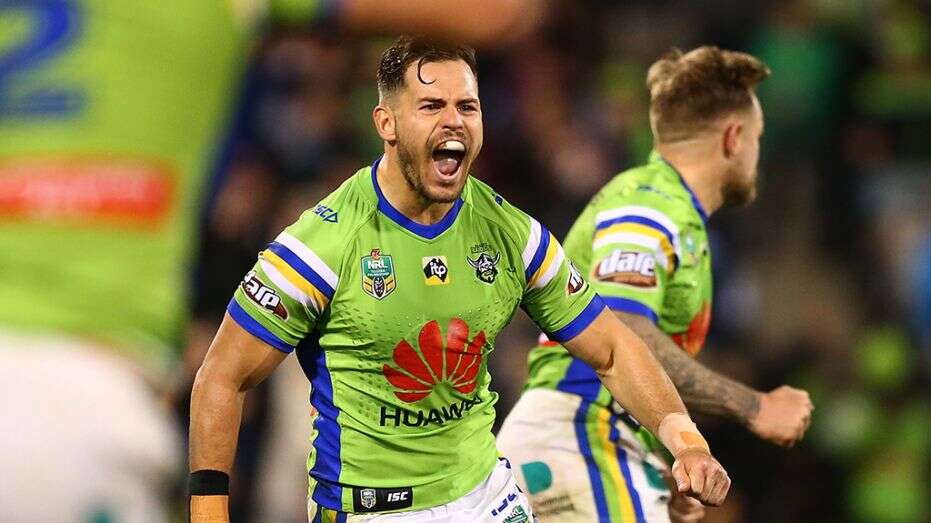CANBERRA, Australia — Chinese telecom giant Huawei announced on Monday it is ending its oldest major sporting sponsorship deal in the world when it ends its contract with Australian rugby league team Canberra Raiders after nine years, blaming a “continued negative business environment.”
Australia has barred the world’s largest maker of switching gear and a major smartphone brand from involvement in crucial national communication infrastructure in recent years, while China has ratcheted up pressure for an Australian policy reversal.
Huawei will end its financial backing of the Raiders at the end of the current National Rugby League season. The grand final is on Oct. 25.
Last year, Huawei renewed its sponsorship deal for two years until the end of the 2021 season.
“The continued negative business environment is having a larger than originally forecasted impact on our planned revenue stream and therefore we will have to terminate our major sponsorship of the Raiders at the end of the 2020 season,” a Huawei statement said.
The Raiders is the only team in the national competition based in the Australian capital Canberra, the center of government and national policy-making.
Huawei’s landmark decision to sponsor the team in 2012 came months after the government banned the company on security grounds from involvement in the rollout of Australia’s National Broadband Network in 2011.
The sponsorship was seen as an attempt to improve Huawei’s public image in the eyes of lawmakers and senior bureaucrats who barrack for the Canberra team.
Raiders board member Dennis Richardson, a former head of the Defense Department and of the main domestic spy agency, Australian Security Intelligence Organization, had been a vocal supporter of Huawei’s sponsorship deal.
Huawei Australia’s chief corporate affairs officer Jeremy Mitchell suggested that a decision of Prime Minister Malcolm Turnbull’s government in 2018 to ban the company from Australia’s 5G networks was at least part of the sponsorship decision.
“Even after the Turnbull government banned us from 5G we managed to find the resources to continue the sponsorship, but we just can’t financially support it any longer,” Mitchell said in a statement.
The statement makes no mention of the coronavirus pandemic’s impact on the business environment.
Raiders chief executive Don Furner said the team was “very sad” to be losing its major sponsor. Neither Huawei nor the team has ever made public the value of the sponsorship.
“The Canberra Raiders and Huawei have enjoyed a fantastic partnership for nearly a decade – they have been by far our longest serving major sponsor,” Furner said in a statement.
China has made Australia lifting its ban on Huawei on essential infrastructure a condition of turning around strained bilateral relations. The diplomatic relationship has since worsened because Australia called for an independent inquiry into the origins of and international responses to the coronavirus pandemic.
The Raiders have become more successful in recent years. The Raiders were runners up in last year’s premiership and are ranked fifth in the current season. They last won a premiership in 1994.
Huawei is at the center of a major dispute between Washington and Beijing over technology and security. U.S. officials say Huawei is a security risk, which the company denies, and are lobbying European and other allies to avoid its technology as they upgrade to next-generation networks.
China, meanwhile, is trying to encourage Europeans to guarantee access to their markets for Chinese telecom and technology companies.
Huawei is suffering as Washington intensifies a campaign to slam the door on access to foreign markets and components in its escalating feud with Beijing.
European and other phone carriers that bought Huawei gear despite U.S. pressure are removing it from their networks. Huawei got a flicker of good news when it passed rivals Samsung and Apple as the No. 1 smartphone brand in the quarter ending in June thanks to sales in China, but demand abroad is plunging.

